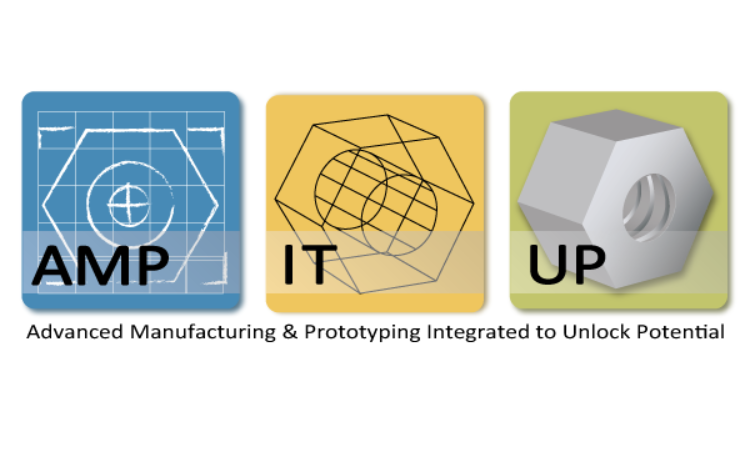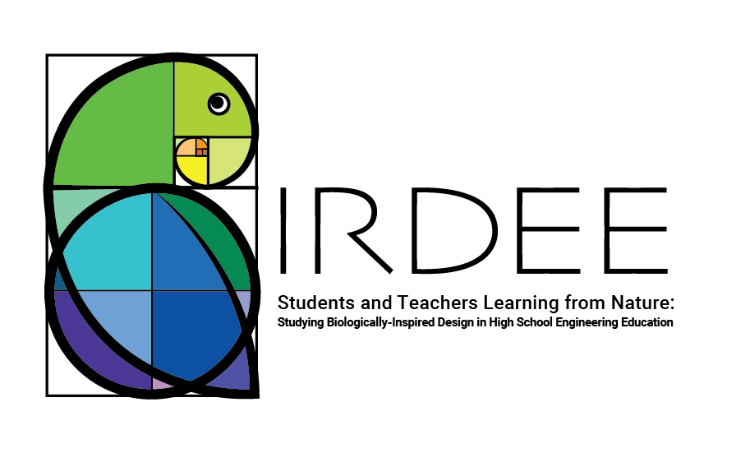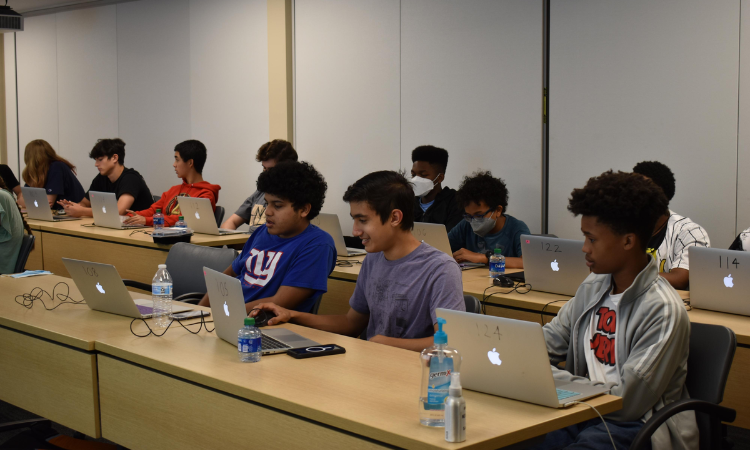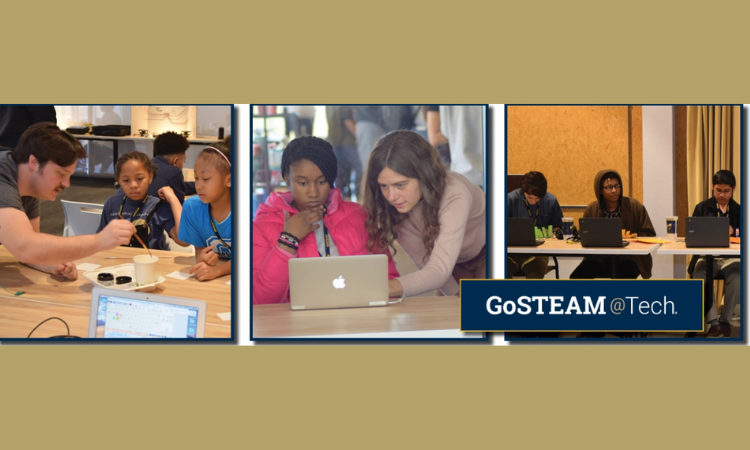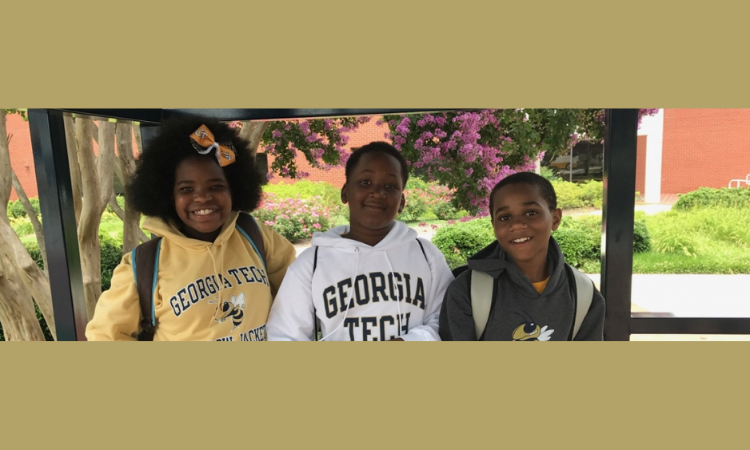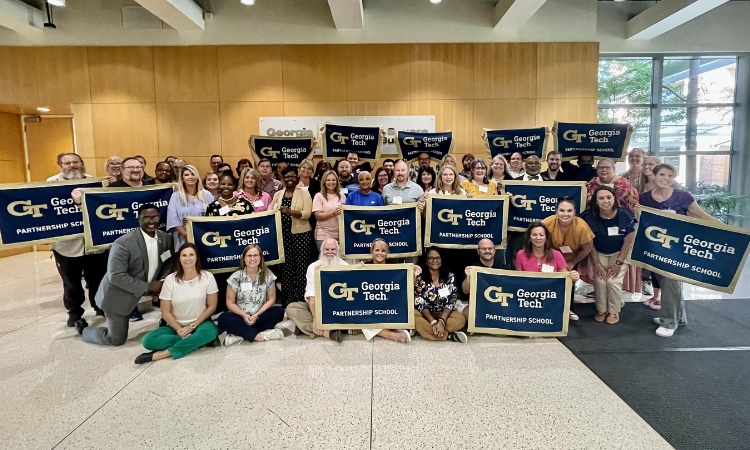AMP-IT-UP
Advanced Manufacturing and Prototyping Integrated to Unlock Potential (AMP-IT-UP) aims to cultivate the next generation of creative science, technology, engineering, and mathematics (STEM) innovators. Through the use of real-world contexts, the partnership creates, implements, and evaluates an array of manufacturing-focused experiential learning programs designed to make explicit the inherent science and math. The project also involves a collaborative university-based research program from several fields of education, industrial and mechanical engineering, and public policy. AMP-IT-UP provides a unique opportunity to implement substantial reform of STEM education to connect science and math to local industries and jobs.
BIRDEE
Scientists and engineers often learn from nature to develop new products that benefit society, a process called biologically-inspired design. In this project, high school engineering teachers will spend five weeks in a research lab devoted to biologically-inspired design, as they partner with cutting-edge engineers and scientists to study animal features and behavior and their applications to engineering designs. After this lab experience, the high school teachers will receive three six- to ten-week curricular units, tailored for tenth- through twelfth-grade students, which teach biologically-inspired design in the context of problems that are relevant to youth. The teachers will also participate in ongoing professional development sessions that demonstrate strategies for teaching these units.
CAPACiTY
A team from Georgia Tech collaborates with two partner school systems to create, pilot and assess a new Introduction to Digital Technology (IDT) curriculum. This curriculum will promote the development of rigorous CT skills by engaging students in authentic and culturally relevant problem-based, inquiry learning (PBIL) projects in STEM topics, such as resource sustainability. Student-created multimedia digital narratives consisting of web pages, mobile applications, and computationally generated music will showcase student learning and their solution to the PBIL challenge.
Through this program, students will become proficient with a variety of computational tools such as PowerPoint, ARIS and EarSketch (a digital platform that teaches programming through music mixing).
GIFT: Georgia Intern-Fellowships for Teachers
GIFT is a professional development program for Georgia K-12 teachers which provides STEM internships in university research labs, industry, and informal science institutions.
GIFT is designed to:
- Immerse teachers in work place integrated learning;
- Enhance Fellows' mathematics, science, engineering and/or technology skills, content knowledge, and abilities;
- Foster teaching based on inquiry, problem solving and real world relevance; and
- Foster an increase in student inquiry skills and positive attitudes toward science and mathematics.
GoSTEAM
GoSTEAM@Tech is an educational collaborative based at Georgia Tech to create sustainable, school-based initiatives that integrate the arts and music into Computer Science, Engineering, and Invention & Entrepreneurship education in authentic and compelling ways. STEM and art/music teachers are paired throughout the year with Innovators in Residence and GoSTEAM coaches to engage students in creative STEAM-focused experiences and to promote vertical teaming between schools, universities and the community. The ultimate goal of GoSTEAM is to create and disseminate thoroughly assessed preK-12 interventions that authentically integrate the arts into the technical fields of engineering and computer science and that promote deep learning in both fields.
School and Community Engagement
One of our goals is to create inspiring STEM enrichment and outreach for students. Annually, CEISMC programs impact more than 62,000 students and 3,500 teachers in over 99 school districts throughout the state of Georgia. The unit works closely with public and private stakeholders to expand the reach of the Institute’s STEM education efforts in urban communities near Georgia Tech as well as those in rural school districts throughout the state of Georgia.
Rural CS Initiative
Through this project, participating rural high schools in Georgia have access to computer science modules based on unique programs/resources at Georgia Tech, developed and led by Georgia Tech faculty. This pioneering initiative aims to bridge the digital divide by offering these interactive modules in critical areas such as coding, cybersecurity, artificial intelligence, sensors, and data visualization. This empowers the next generation of tech-savvy leaders, fosters interest in STEM fields, and opens doors to exciting career opportunities.
